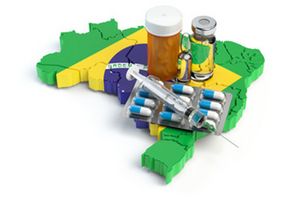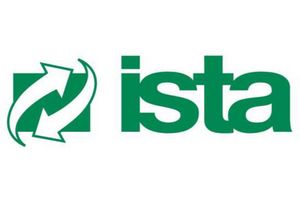Leading Minds Network Summary: Temperature Control Tuesdays Series
Don’t have time to attend every webinar these days? Take 3 minutes to read the highlights below! If you missed the Leading Minds Seminars Online series in May – June, below you will find short summary statements and key learning points from each session. Plus, a link to watch the full session recording on-demand.
Pharmaceutical Supply Chain & Distribution Center Contingencies During COVID-19
The May 19th webinar, was a conversation with QA experts:
Patrick Girten, Manager, Quality Distribution US/PR, Bristol Myers Squibb and Michael Hollweck, Senior Manager QA Logistics Americas, Celgene shared how BMS and Celgene supply chain operations have been affected by COVID and how they expect supply chains to change for the future.
Some of the hardest hit supply chains for BMS were sales samples that could no longer be shipped to Dr. offices, supply that had a sole provider and routes that used certain airports such as JFK that were a complete bottleneck. Without redundancy in place, they had to urgently find new routes or second source providers.
As BMS began to find new routes, how were they QA approved quickly? This is when falling back on a solid risk management approach becomes important. Mike talked about their approach.
At Celgene, when qualifying a new lane for a certain product, their risk assessment includes:
-
1-9 severity scale
-
5 different risk criteria
-
Average maximum temperature
-
Average Minimum Temperature
-
Duration of the route
-
Product Risk category
-
Route complexity (multi-modal or multi-stop)
-
Each risk criteria has a different weight
-
Final weighted score is the risk score
Virtual audits were discussed and how it’s absolutely expected in the future to conduct more audits virtually, there are still many facets of an audit that documentation alone cannot cover. Can you smell that food pallet, or see the spill on the floor near the freezer door, etc.
To dig into this topic in detail, read or view the full conversation with Patrick and Mike by clicking below.
United State Pharmacopeia Updates & Feedback Shipping into Brazil
In the May 26th webinar, Glaucia Karime Braga and Chris Anderson, co-chairs of the <1079> expert committee, described how USP <1079> for Good Storage and Distribution Practices is shifting focus to risk-based approaches to support a company’s overall Quality Management System.
Part of the guidance changes including the new <1079.2> Mean Kinetic Temperature in the Evaluation of Temperature Excursions During Storage and Transportation of Drug Products. Chris gave several useful examples of how MKT can be used for cold and CRT products, including:

In the example above, a refrigerated trailer making a delivery went out of CCT range at 62 hours and 45 minutes
-
The high temperature was 10.95 °C
-
The excursion was less than 24 hours
-
The MKT was 7.28 °C for the last 24 hours (within the excursion MKT limit)
-
In this case, the product would be considered acceptable to release to salable inventory
Glaucia also presented the new Brazilian regulation on Good Distribution Practices, RDC 302/2019. The new re gulation outlines requirements for returns and recalls; and components of a QMS including process mapping, documentation, training, resources and qualification. It further lays out expectations for:
gulation outlines requirements for returns and recalls; and components of a QMS including process mapping, documentation, training, resources and qualification. It further lays out expectations for:
-
Excursions and non-conformance handling
-
Complaints
-
Qualification/Validation of computerized systems
-
Monitoring records for audits
-
Storage conditions
-
Supplier and Customer Qualification
-
…and more
To learn more about the USP <1079> developments and the new Brazilian GDP regulations, watch the webinar on demand, presented by:
-
Glaucia Karime Braga, Co-Chair, <1079>Expert Committee, United States Pharmacopeia & Auditor, Public-Private Partnership, FURP Brazil
-
Chris Anderson, Co-Chair, <1079>Expert Committee, United States Pharmacopeia & Director Quality Systems, Cardinal Health
Exploring Sustainability in the Packaging World

During the June 2nd webinar Vivian Berni, Director, Product Management, Sonoco ThermoSafe, and Mark Everitt, Qualification Engineer, Process Controlled Transportation, AstraZeneca described the differences between recyclability, biodegradability and reusability as they pertain to everyday consumer behavior, as well as in the pharmaceutical packaging world. First, the presentation provided alarming statistics how the COVID-19 pandemic has reversed the progress of sustainability by years with extreme amounts of waste of plastic bags and PPE. The conversation gave examples what is recyclable, and what is not. The entire supply chain of recycling was clearly outlined from consumer to recovery facility to processer and ultimately – is it truly recyclable?Then, the same definitions and differences were made for biodegradability, stepping through the process to determine if materials that are used often fall into the biodegradable category.
Reusability – the topic on the mind of pharmaceutical companies these days was also explained from a consumer perspective, but also the process for parcel deliveries of pharmaceuticals. What are the supply chain requirements for using reusable packaging in your supply chain? Mark provided his experiences so far at AstraZeneca.
If you’re looking for a comprehensive 101 on recycling, biodegradable and reusable with insightful input on how a large pharmaceutical manufacturer, AstraZeneca, views these topics – watch the full session on demand today.
Transport/ Packaging Qualifications – Where are we?
Session contributors:
-
Ben VanderPlas, Director, Engineering and R&D, Sonoco ThermoSafe
-
Mark Everitt, Qualification Engineer, Process Controlled Transportation at AstraZeneca, as part of the ISTA Committee
-
Michael English, Director, Engineering and Packaging Technical Operations, Merck & Co.
The June 9th webinar sought to create awareness of the new ISTA Pharma Committee that is working on the new Passive Thermal Packaging System Operational Qualification Best Practice Guideline. Ben and Mark sit on the Committee. The guideline and new Committee are in early days, and they are seeking additional industry practitioner input. Please contact Ben.VanderPlas@Sonoco.com if interested.
ISTA New Guidance on Passive Systems will cover:
-
Equipment
-
Test Plan & Methodology
-
Documentation
-
Implementation Considerations
-
Appendices: Best Practice Examples
Michael, as part of the PDA Committee, shared the PDA organizational updates and created renewed awareness of PDA Technical Report 39 Update.
PDA’s seven pillars of Good Distribution Practices
-
Stability
-
Distribution Control Management
-
Performance Management
-
Supplier Chain Partner management
-
Qualification/Validation
-
Continuous Improvement
-
Import/Export Compliance
Watch the full webinar recording to hear Michael explain each pillar in more detail.
Real-Time Monitoring: Mobile IoT Solutions with ELPRO’s new LIBERO G
 Simon Kaufmann, Product Manager, ELPRO and Emanuel Schäpper, Team Leader Key Account Management, ELPRO carefully laid out the landscape of wireless IoT technology including differences between private/public networks; proprietary/standard network protocols; and how LTE-M and NB-IoT are used in the pharmaceutical supply chain. They also described how Mobile IoT is outperforming 2G/3G due to lower amounts of data using lower power consumption, energy efficient handshake between antennas, and deeper penetration into buildings.
Simon Kaufmann, Product Manager, ELPRO and Emanuel Schäpper, Team Leader Key Account Management, ELPRO carefully laid out the landscape of wireless IoT technology including differences between private/public networks; proprietary/standard network protocols; and how LTE-M and NB-IoT are used in the pharmaceutical supply chain. They also described how Mobile IoT is outperforming 2G/3G due to lower amounts of data using lower power consumption, energy efficient handshake between antennas, and deeper penetration into buildings.
LIBERO G Mobile IoT solution was presented, including the long battery life that offers new possibilities for assurance of longer shipments. All LIBERO G data loggers track location, temperature, shock and tilt. The full family of LIBERO real-time data loggers includes the industry’s only single use device, as well as options for frozen, cryogenic and humidity.
Practical applications of real-time monitoring were discussed, including:
-
Global Supply Chains: bulk, parcel and/or IMP shipments with various requirements in size, value, temperature range, route, etc that require a flexible monitoring approach, including availability to easily manage stability budget for many products
-
Safety for Time Critical Biologics: time-sensitive shipments, with risk of false alarms and loss of irreplaceable products. Often including special containers (cryo containers, dry ice box)
-
Asset Tracking and Compliance: transport providers needs to tracking location of critical assets using low roaming costs, with runtime of more than 1 year battery life
-
Follow your Products In-Transit and In-Storage: clinical trial supply chains may touch several storage points at depot and clinical site. Real time monitoring the entire supply chain can provide great assurance
To learn more about these real-time monitoring applications and how you can apply Mobile IoT to your life science supply chain, watch the full webinar recording or visit the LIBERO G solution page.








Leave a Comment